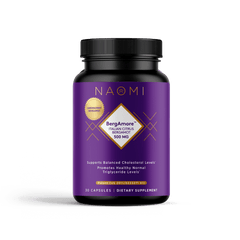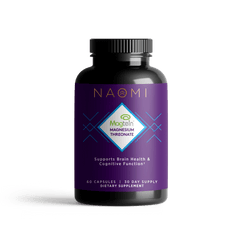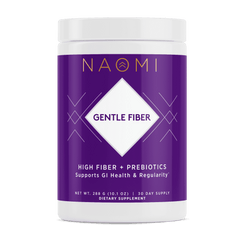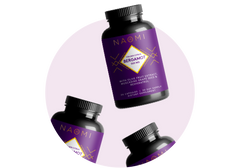Common Mistakes that Lead You Down the “Dirty Keto” Path
Activating autophagy provides so many immediate and wide-ranging health benefits, which I share with you in my bestselling book Glow15. Intermittent fasting, protein cycling, a diet high in good fat and my youth-boosting AutophaTea have made a world of difference in my life, and I hope yours too. I often discuss my journey to wellness and the adjustments I have made along the way, and one of those adjustments occurred a year and a half ago. I was battling an uptick in inflammation due to the amount of travel and work I had taken on, and I realized that I needed to examine what I was doing, what I was ingesting and make a change. So, I made the decision to go traditional keto, the classic approach to the ketogenic diet plan, which is more restrictive on carbohydrate intake (75% fat, 20% protein and 5% carbs) and extremely beneficial for those individuals that suffer from auto-immune or metabolic issues. Going traditional keto not only allowed me to make a beneficial change for my inflammation, but it still allowed me to function within the principles of Glow15. However, through this structured process, I discovered some distinct nuances to starting a traditional ketogenic lifestyle, and I would like to share them with you to support you in achieving your goals.
The differences I’m referring to come down to certain key distinctions between what is known as “dirty keto” and “clean keto.” While I am a solid believer that there is no “one right way to keto” and you need to find the specific dietary strategies that work best for your unique biochemistry, a dirty approach to keto is downright harmful to everyone. Trust me, the benefits you will reap from clean keto are nothing short of miraculous. On the flip side, the dangers of dirty keto can actually set the stage for increased inflammation and risk of chronic disease, which clearly is not the ultimate goal.
Additionally, doing anything just for the end goal robs you of the process… the journey. My spirit of discovery is not just for travel, but for the inner journey as well. When we connect with our food and see it as more than just grams of fat or grams of carbs, for example, food can take on much more power and that energy we give it by honoring its huge medicinal ability can have life-changing effects on our health. So, first off, I encourage everyone to assume a humble perspective of food. The junky, processed stuff can completely wreak havoc on your health, skin, mood, sleep, energy, and weight while the real, whole, vitally-charged food can heal, bring you back into balance and give you your life back. It’s remarkable and it’s true. But yet, in the light of getting results quickly, even the best of us (like yours truly) can sometimes forget its power!
My interest and passion for real, whole foods and their incredible healing power dates back to my childhood with an autoimmune skin disease. The path I took to find the right combination of dietary and lifestyle changes to effectively manage my disease and give me my life back is something I now feel both compelled and obligated to share with everyone I meet.
The ketogenic diet has been a big part of my personal journey and healing process, yet I’ve learned along the way just how essential it is to ensure your body is prepared and equipped for the major changes in mindset and physiology. This preparation includes understanding that the nutrient-density and quality of what you eat is profoundly important, and that the environment in which we live also must be addressed and accounted for. I always stress that quality trumps quantity. The quality of our food isn’t about keeping on trend with the culture of organics or pastured animal foods. Quality is important because the toxins and impurities in our food system are actual real players in disease, obesity and inflammation. Many top researchers have studied the science behind the connection between environmental toxins, our food supply and inflammation. There’s an actual field dedicated to it and I believe it’s going to become a more prominent discussion in the coming years. Researchers coined the term obesogens, which refer to both dietary and environmental toxins that directly contribute to obesity and metabolic disorders. Avoiding obesogens starts with the foods you put into your body.
I was fortunate enough to have a conversation with Dr. Cate Shanahan, one of the unbelievable experts I had the opportunity to interview in The Real Skinny on Fat docuseries. She so simply, yet profoundly, put everything into perspective for me when she said that unhealthy fats are worse for the human body than cigarettes. Let that sink in for a second…. Think about all the cappuccinos with cream and choosing dishes off the menu with the richest and heaviest of sauces, and yet not paying much attention to the quality of these fats, but only concerned with how much of it we can consume.
What do I mean by not seeing the forest for the trees regarding a ketogenic diet? Our body can solidly enter a state of ketosis by living off of low-quality bacon and fried cheese. But are you using the ketogenic diet simply to be in ketosis, or is your intention to experience its therapeutic and healing benefits? I suspect the latter.
Let me share five areas where individuals can most commonly stray from a clean keto model and enter the dangerous realm of dirty keto. Thankfully, all can easily be replaced by cleaner higher quality, real food alternatives.
Five Common Dirty Keto Mistakes
1. Rancid Vegetable Oils
There’s really no delicate way to say this: toxic fats are slowly killing us. By toxic fats, I mean modern day food culture’s profit-based practices of stocking shelves with oxidized (rancid) omega-6 fatty acids prevalent in highly processed vegetable oils and all processed foods that use these oils. Vegetable oils most commonly used for cooking and that lurk in most all restaurant kitchens include canola, soybean, corn, sunflower, cottonseed, and grapeseed oils. The reason these fats are used is because they are cheap and have a seemingly endless shelf life due to the fact they are very highly processed, so basically have already gone bad before even leaving grocery store shelves.
These types of processed vegetable oils (the new cigarettes) are simply unnatural in the human diet and are being used in shockingly large amounts between at-home cooking and processed foods. They have been linked with systemic inflammation, neurodegenerative conditions, cardiovascular disease and more. An overabundance of polyunsaturated omega-6 fatty acids throws off the natural omega-3:omega-6 ratio, and since this balance is critical to human health it’s no surprise that we are in an epidemic of rampant inflammation.
To avoid this major pitfall of dirty keto, focus instead on the nourishing and healing fats that I outline in detail in Glow15 such as coconut oil, MCT oil, grass-fed butter and ghee, avocado oil, tea seed oil, avocados, nuts, seeds (pili nuts are my secret weapon) and omega-3 fats from wild caught fish and BioAlaskan fish oil.
Given just how prevalent toxic fats are in today’s diet, it might seem next to impossible to avoid them, especially if eating out is part of your reality. Tricks I’ve learned that have made a world of difference include carrying with me a travel-size bottle of extra virgin olive oil (hint: quality matters when it comes to EVOO) and not being afraid to speak up when you’re eating out. Sadly, canola oil runs in the veins of restaurants, so going as far as telling servers that you are allergic to it might be the answer. Don’t feel bad telling a white lie — it’s your health on the line.
2. Conventional Dairy
Having grown up in Europe, dairy has always been a part of my diet. Unfortunately, modern-day practices of processing dairy result in a very different product than what I grew up with. But being the dairy-lover I am (and suspect most people are!) my keto-enthusiasm propelled me to immediately begin ordering cappuccinos made with cream, not giving much thought to the quality of cream. Processed heavy cream you find in most grocery stores and pastured, grass-fed or organic cream is a completely different beast, and I learned this the hard way. The low-quality dairy I was consuming combined with the fact that I am genetically predisposed to metabolizing toxins slowly began causing major problems with my liver, skin, and gallbladder.
There is mounting evidence that organic and/or pastured dairy is not only higher in those anti-inflammatory omega-3 fats and antioxidants, but also (especially cream and butter) can improve your metabolic health and strengthen your gut barrier, meaning you’ll be at less risk of leaky gut and autoimmune issues. On the other hand, conventional dairy products potentially run the risk of subjecting you to hormones, antibiotics, and toxicity, not to mention the sickening animal rights abuses that take place daily at CAFOs (confined animal feeding operations).
3. Conventional MCTs
If I had to pick my top keto power-food, MCT oil would, hands down, be it. Unfortunately, there are many MCT oils on the market that degrade the nutritional value and benefits of this super-fat by using solvents, hexane, and other toxins during the extraction process. Because MCTs (medium-chain triglycerides) go directly to the liver, choosing a pure and organic brand is critical. And yet, take a look at the marketplace and you’ll struggle to find an MCT that fits the bill!
For this very reason (and my love affair with a good cappuccino), I created Simply GOODFATS® line of products using only the purest of ingredients and safest of processing methods. Simply GOODFATS® Coffee Creamer, MCT oil and coconut oil allow you to indulge in these delicious fats and feel confident that you aren’t increasing your body’s toxic burden. Not only will these fats make your morning coffee even more mouth-watering, but they’ll also fire-up brain cells, boost your metabolism and calm cravings.
4. Not Getting Enough of Your Polyphenols
Since you will be limiting certain foods like fruits and starchy vegetables on a ketogenic diet to promote insulin sensitivity (along with a myriad of other benefits), you will naturally need to find ways to maximize your micronutrient intake.
Nature’s pharmacy is rich in polyphenols, which are naturally occurring plant compounds that can add years to your life, restore health and increase vitality. While over 500 polyphenols exist, some of the key players that I include in Glow15 are EGCG found in green tea, resveratrol-trans, berberine and organic curcumin. These four powerhouse nutrients are so incredibly potent that I called them Powerphenols.
With the ever-growing popularity of the keto diet, many powders and products have come on the market, and you might think these are an excellent way to get in your polyphenols. This is both true and not true and (yet again) it all comes back to quality. Sadly, so many of these micronutrient and greens powders that claim to be nutrient-dense are actually packed full of more toxic fillers, flavoring agents, sweeteners and artificial ingredients than nutrients.
To power your ketogenic diet with polyphenols, some of my go-to’s are resveratrol-trans, tart cherry and targeted teas that provide polyphenols without impacting insulin. I especially recommend focusing on green tea (high in the powerphenol EGCG) and AutophaTea, a powerful blend of EGCG, whole citrus bergamot and cinnamon developed to promote energy, control cravings and support weight management.
5. Enzyme Support
Last but certainly not least; I can’t stress enough the importance of digestion. Doctors and medical traditions throughout history have known that health only exists on a solid foundation of healthy digestive function, and this becomes even more important as you transition to a high-fat diet.
Digestive enzymes are substances that help to break the different components of food down into small particles so that they can be digested and absorbed by the body. Our bodies produce different kinds of digestive enzymes naturally in the mouth, stomach, pancreas and small intestines.
Some people suffer from decreased digestive enzyme production and can experience a variety of digestive complaints including gas, bloating, constipation, diarrhea, and nausea. Understandably, as you increase your fat intake on a ketogenic diet, you must have the right type and amount of digestive enzymes to help you properly digest your food. If you’re unable to digest fats then things become backed up (constipation, for example, is common when transitioning to a ketogenic diet without the proper enzymes for fat digestion), and this means that your body is holding on to toxins. Since the point of clean keto is helping to jump-start your metabolism, promote autophagy and support natural detoxification pathways, it’s essential that digestion is running smoothly.
Biogest by Thorne is wonderful for fat digestion in particular, and Similase by Integrative Therapuetics is a high-quality product for general digestive support.
I am so very excited for you to experience the same life-changing transformations that I have with a ketogenic diet, but I had to learn several lessons the hard way. As with all diet models, the keto diet should be rich in nutrient-dense, whole foods that not only promote fat-adaption but also keep you healthy and disease-free for the rest of your life. Take advice from someone who has been in your shoes and is now here to support you in turning your health goals into reality.













